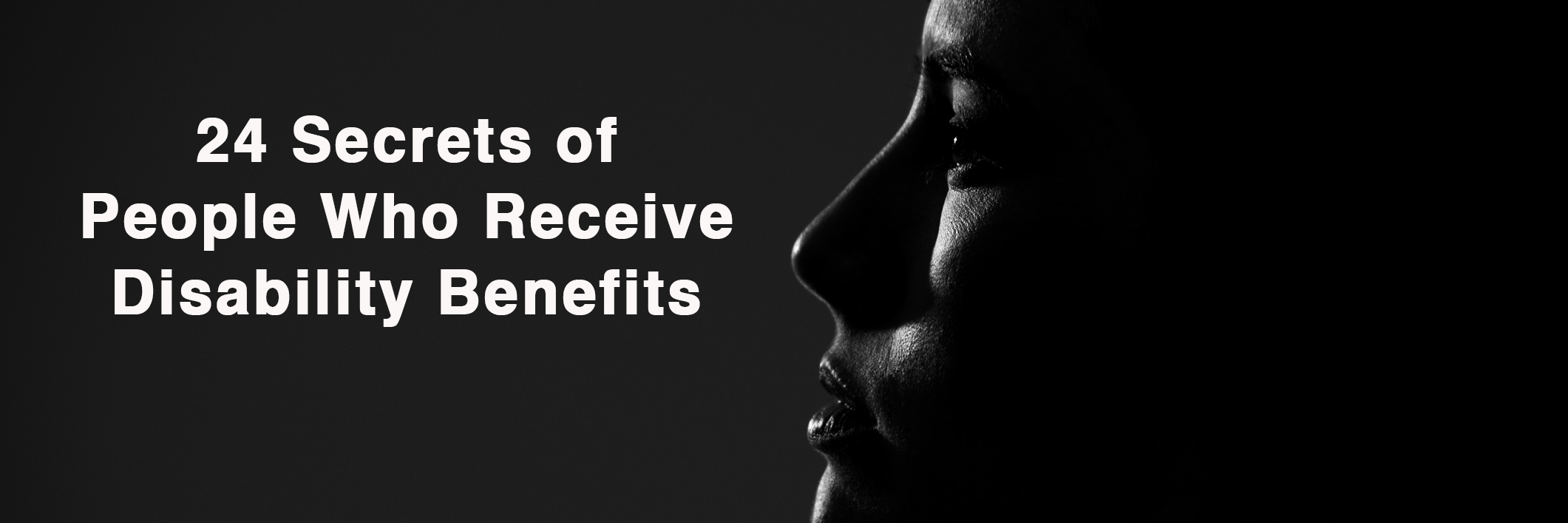24 Secrets of People Who Receive Disability Benefits
Although disability benefits can be helpful for those who are unable to work due to an illness or disability, there are unfortunately a number of challenges and stigmas involved. The application process can be long and tedious and cause applicants to feel judged by their peers or scrutinized by those reviewing their case. And when people do receive benefits (which still may not provide financial security), sadly there are still misconceptions that they get to “relax at home” or are “just seeking a handout,” neither of which could be further from the truth.
The last thing those who are already struggling with an illness or disability need is the added stress of these difficulties, which can manifest both physically and emotionally. So, we asked our Mighty community to share some of their secrets about what it’s like to receive (or apply to receive) disability benefits in order to promote understanding and put an end to these harmful stigmas.
Here’s what our community told us:
1. “I don’t get everything paid for. I’m not living the life of Riley! I’m scrambling around every month trying to find ways to make ends meet, which adds to the exhaustion and stress I already have living with a chronic illness.”
2. “You feel like a criminal, even when you have doctors and professionals documenting your disability and you have been approved. You have your life scrutinized by people who write the paperwork, people who make the decisions and society itself.”
3. “I don’t want disability benefits. I want to work. I want to be able to function, and I hate that I can’t.”
4. “The control and fear. I don’t think people realize that benefits can be stopped or withheld at any time – the government has that control. That fear is always at the back of your mind.”
5. “I can’t marry my partner of 13 years because it would interfere with my daughter’s benefits. That makes me sad.”
6. “It’s dehumanizing. You have to report almost every aspect of your life to strangers so that they can judge whether or not you’re sick enough to deserve basic disability benefits that, in the end, aren’t even enough to live on anyway.”
7. “A lot of people don’t know that we pay taxes and for our Medicare too! It’s not ‘free’ by any means.”
8. “How you live in fear every day of losing your benefits because someone tagged you in a photo on Facebook or you were seen out in public ‘appearing’ able-bodied.”
9. “Since our society equates productivity, and more specifically work, with a person’s inherent worth, it is difficult to learn a different way of being that also creates personal value and dignity.”
10. “It was a huge relief at first, but it didn’t take long to feel paranoid that I was being judged as a leech who was somehow not deserving of the benefit program I had paid into over my 30-year career.”
11. “The fear that your financial stability is reliant on someone else’s opinion about how ill you are rather than on how ill you actually are.”
12. “Having to tell someone you can’t work because of your health isn’t easy. It makes me feel like I failed.”
13. “The equal happiness and shame you feel. Happiness because you’ve got money to live on, but shame because of how people react to you and everyone else on benefits.”
14. “It is not an ‘easy street’ and it is not ‘great’ or ‘enjoyable’ not being able to work. The money is a help, but it does not solve everything, and barely covers the cost of living, let alone any extra cost you may incur due to your conditions.”
15. “People think I get paid to sit at home and therefore think I should be doing this or that for them since I am ‘sitting at home anyway.’”
16. “It’s hardly enough to live on, yet I still feel guilty for taking it. I’ve never not had a job… or two. Everything I have ever had, I worked hard for. I hate not working.”
17. “Some doctors treat you as a non-person or drug-hound. It’s so degrading.”
18. “To receive any form of public assistance means that you receive some medical coverage and some financial support with your food and shelter expense. But this does not mean financial stability or security. It means you are treading water with just your nose above water.”
19. “It’s a part-time (or full-time) job in and of itself filling out paperwork and jumping through hoops to apply.”
20. “It’s certainly not a glamorous life. I’d give it all up to be able to work… I want my back to hurt because I’ve put in a long day at work, not because of an injury and failed fusions. I want my old life back.”
21. “The guilt and disappointment in yourself for taking the money instead of earning the money like you did before you were ill/injured.”
22. “It isn’t enough. I often go without food so I can pay my rent, utilities and medical expenses. No one knows. I feel like it is my shameful secret.”
23. “That it’s sincerely the hardest thing to get. You have to go through several months of testing, keep hundreds of documents and have a lawyer – who you can already not afford – help you out.”
24. “You’re damned if you do, you’re damned if you don’t. If you get disability benefits, you are criticized for not being ill enough and stealing money from others. If you try to work through your illness, you are criticized for using more sick leave than average.”

